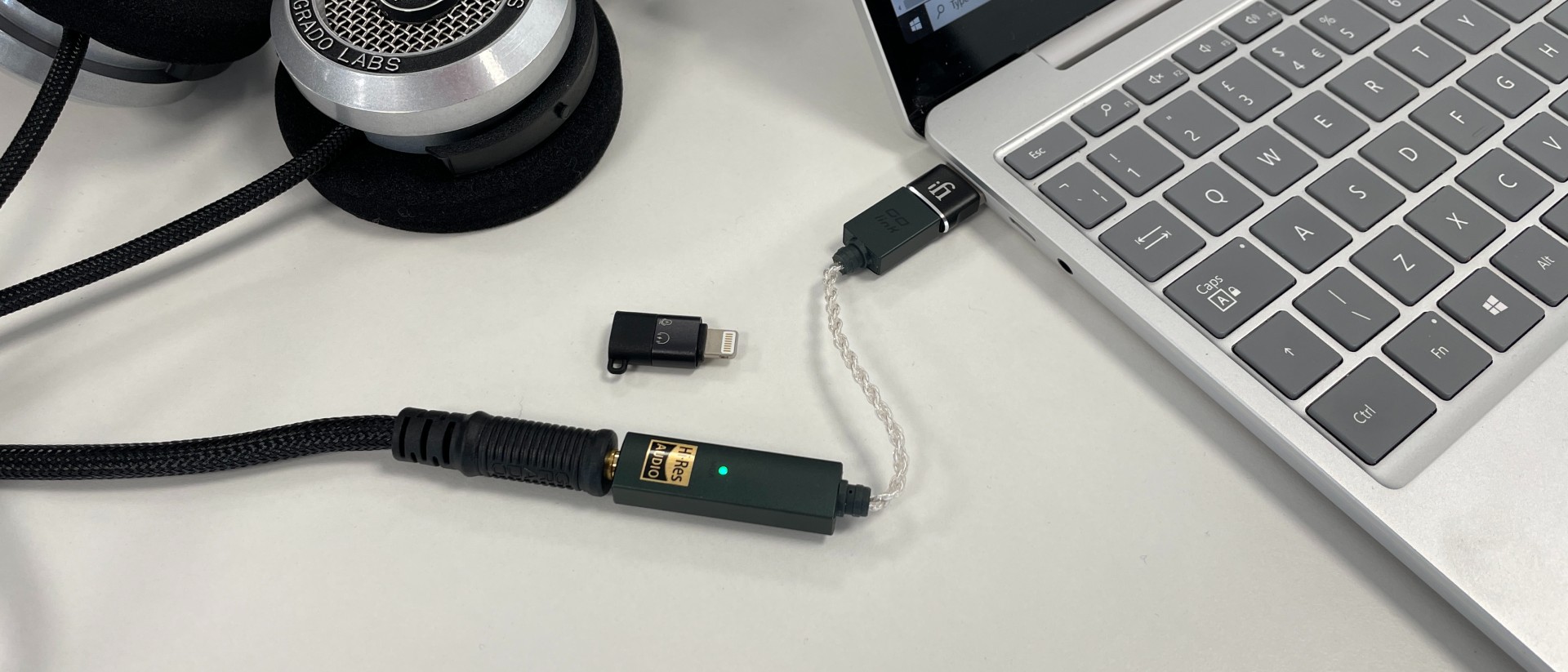
When we received the news for the portable iFi Go Link late last year, we were promised a digital-to-audio converter (DAC) that would deliver “supercharged” sound at a “super-affordable” price. The idea of supreme sound for a minimal financial outlay always sounds like the stuff of dreams, but those dreams can often turn into nightmares if you realise you’ve bought a cheap piece of tat that offers few discernible benefits and then breaks three minutes after you get it out of the box.
Still, there are some DACs that, rather than being chunky desktop units or even bulkier headphone models, manage to marry slimline designs with value for money and discernible improvements in your source’s audio performance. Just look at the ultra-compact, Award-winning AudioQuest DragonFly Cobalt USB DAC, or the equally impressive Astell & Kern AK USB-C Dual DAC Cable for proof that size doesn’t always equal sonic supremacy.
Not, of course, that this is a given thing. The equally diminutive THX Onyx was small and well-featured, but its sound felt basic and its rivals did a similar job with ever more élan. Improving sound quality on a shoestring while also keeping the weight down? That’s no easy feat by anyone’s standards. Let’s see if the iFi Go Link is up to the task.
Build & design
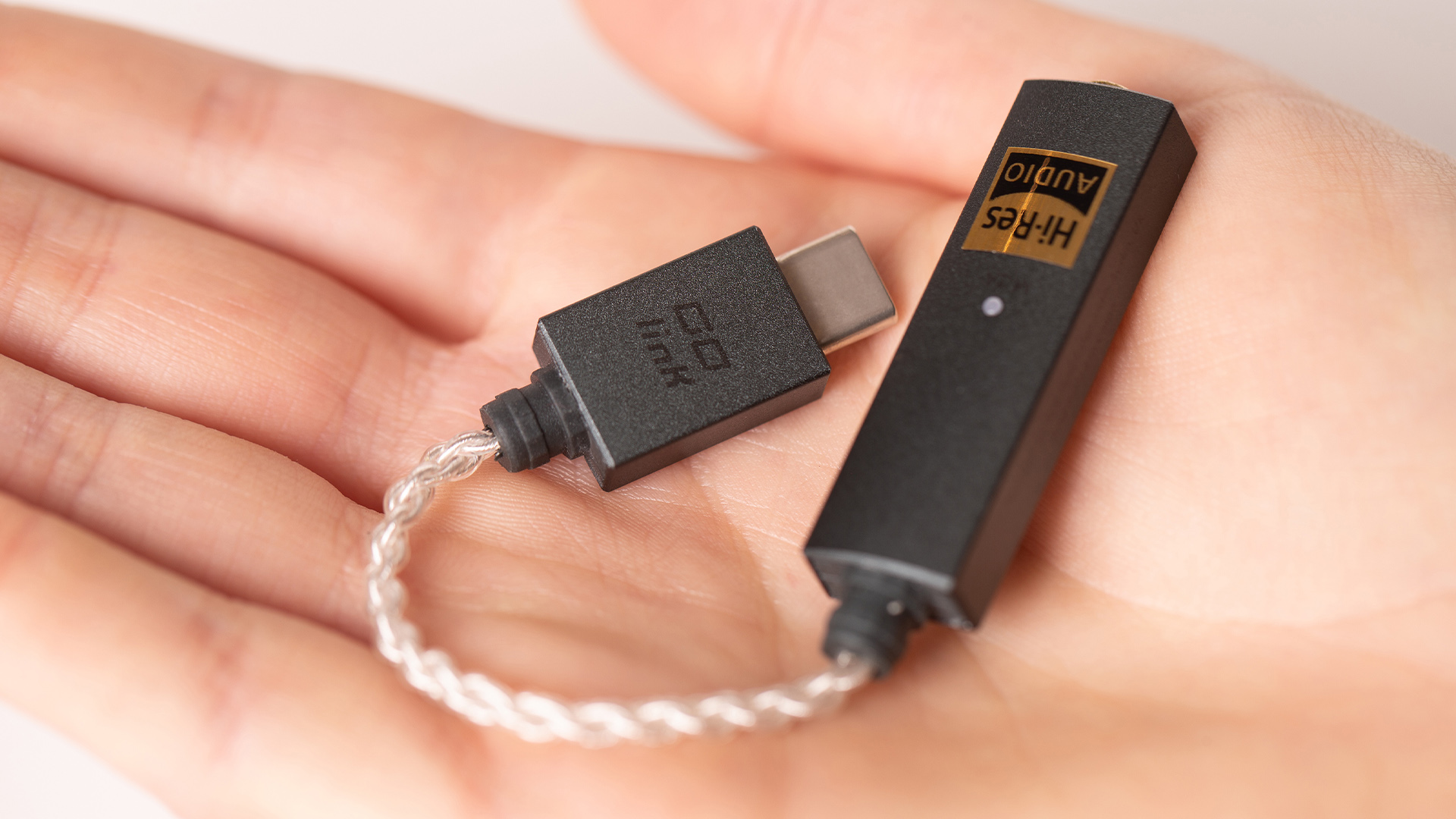
The iFi Go Link comprises the main DAC unit, a small corded cable and then a built-in USB-C plug, with interchangeable USB-A or Apple's Lightning connector adapters available as standard. This means you can plug the DAC into a laptop if it still uses the larger USB-A port, or simply use the standard USB-C end to plug into the requisite slot if you’re using a more up-to-date model. The Go Link can also be used with smartphones, too, which is handy.
Just be careful when you pop it into any new device while wearing headphones, as you can get a deafening blast of sound sufficient to knock your eardrums through your brain when the volume arbitrarily goes up to 100.
Nothing here is cheap or flimsy, and we’re impressed by little touches such as the metal casework as opposed to budget plastic. While some DACs, even supposedly portable ones, can add significant weight to your set-up, here the experience is essentially the same as listening to a standard pair of wired headphones, so much so that (sonic improvements aside) you’ll likely forget the Go Link is even plugged in after a time.
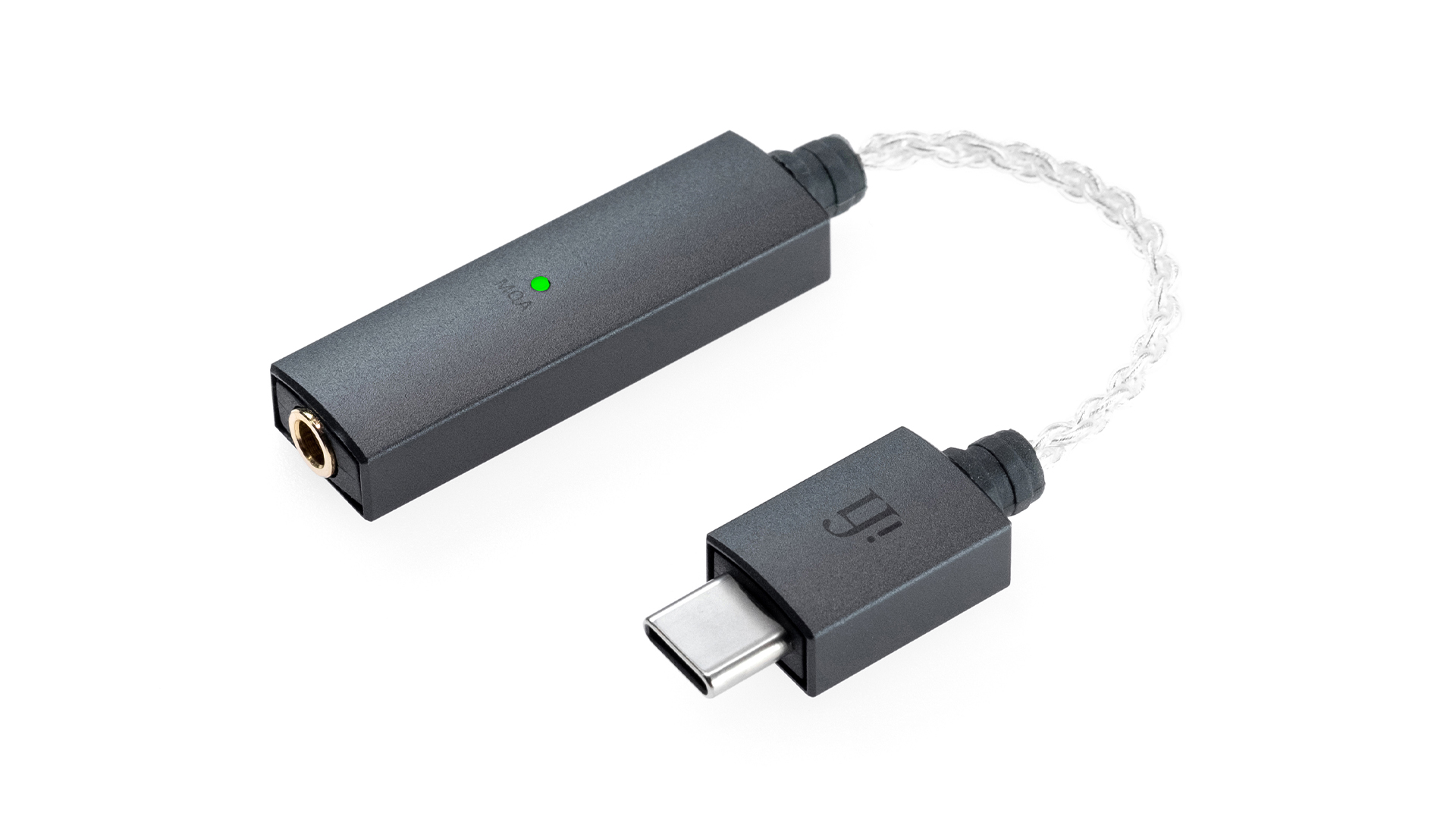
Inputs USB-C, Lightning, USB-A
Outputs None
Headphone output 3.5mm
Bluetooth? No
Max file support 32-bit/384kHz, DSD 256, MQA
Battery-powered? No
Dimensions (hwd) 135 x 12.6 x 7.6mm
Weight 11g
Our only major point of concern here was the dinky DAC’s potential for fragility thanks to its corded design, especially the points where the cord meets the main unit and the connector plug. We may be fretting over nothing, but we couldn’t help but worry that the connecting point between plug and wire might fatigue over time, especially after long periods stuffed into your bag or pocket.
Our only other real issue came in the form of connection drops, as sometimes our test sample could drop out or come loose when using the standard USB-C connector. It may have been a problem on our end, but the DAC tends to need stillness from its source, especially when plugging the USB-C into a laptop, in order to maintain a stable marriage.
Features
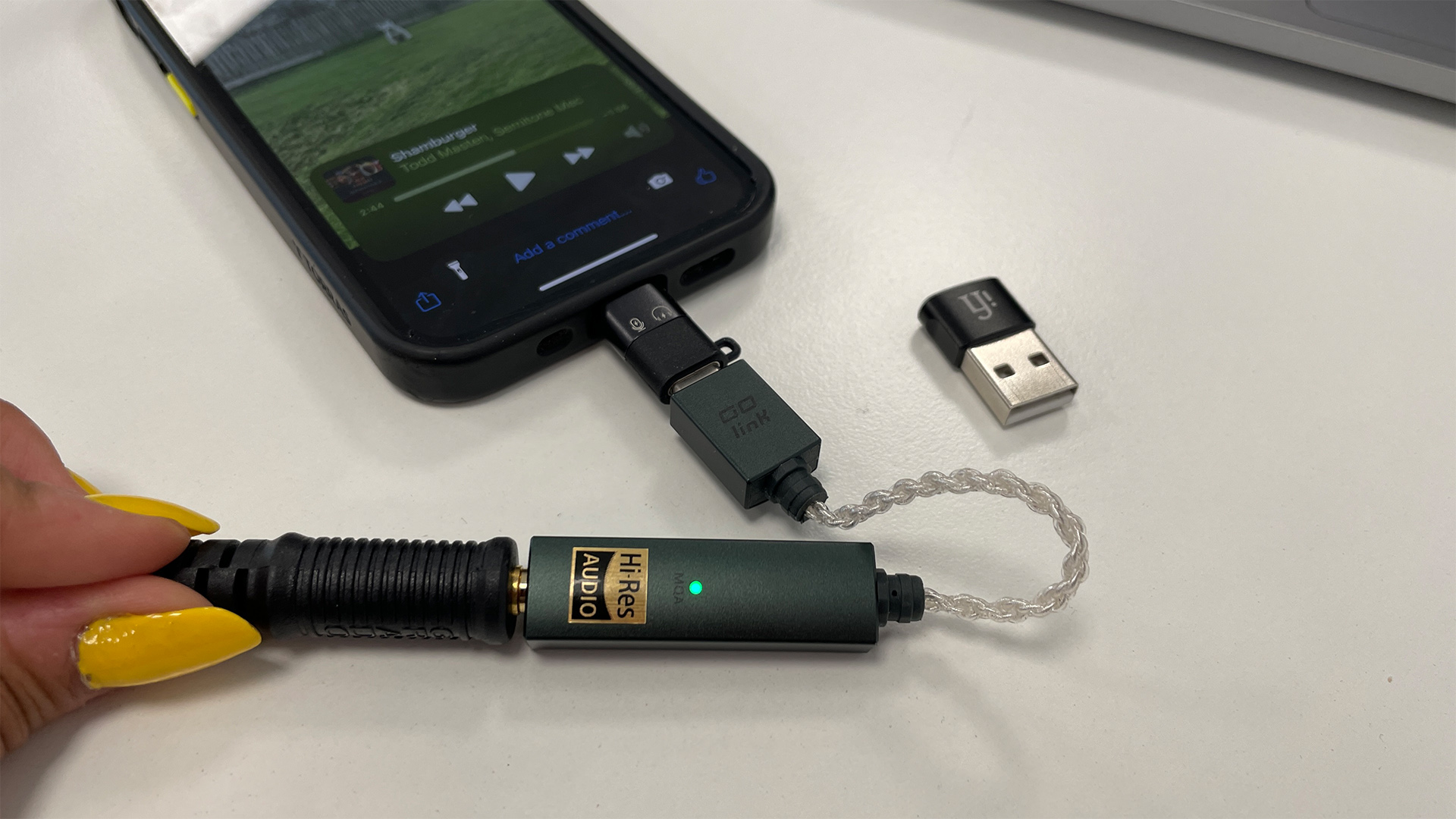
The range of file types supported here is more than we’d expect for this sort of price. The iFi Link Go backs PCM audio playback up to 32-bit/384kHz, along with DSD up to 11.2MHz (DSD 256) and MQA, the latter of which is handy for anyone subscribed to Tidal’s excellent Hi-Fi Plus tier.
The titchy unit itself doesn’t have room for much, of course, but it does feature a single LED dot which changes colour depending on the stream you’re listening to. Green denotes PCM 44.1/48/88.2/96kHz, yellow means PCM 176.4/192/352.8/384kHz, DSD64/128 is cyan, blue is DSD256 and magenta is MQA. For a £60 / $60 DAC, this is a welcome little feature.
According to the manufacturer, the Go Link doesn’t depend on the software-based volume controls in connected digital devices as this can negatively affect audio resolution. Rather, changing volume on the device controls the volume level in the DAC itself, not the connected source, helping to deliver what iFi promises is superior sonic performance in the process.
Sound
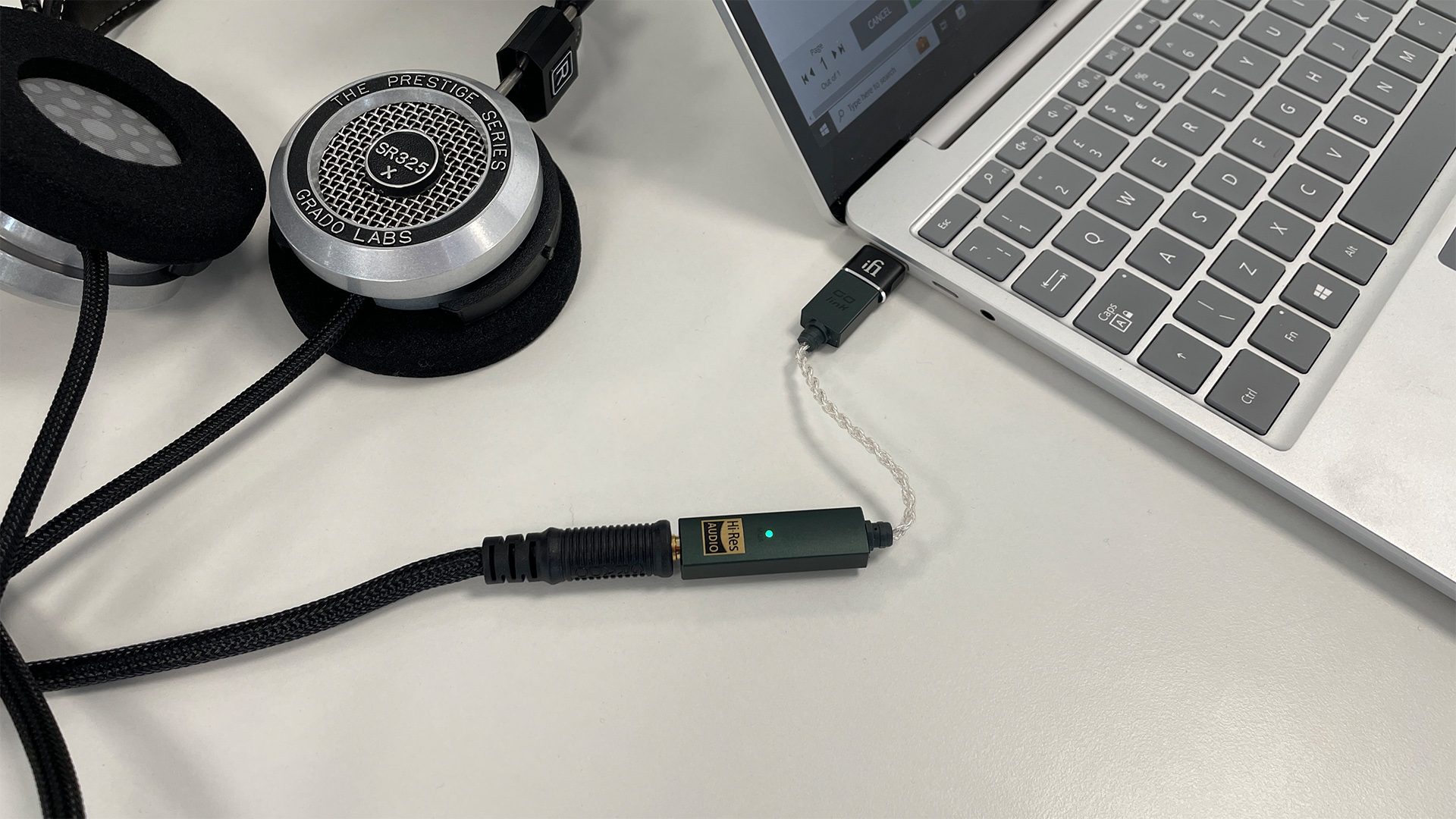
We mainly use two wired headphone models for testing – the Award-winning Grado SR325x and the five-star Røde NTH-100 over-ears – switching back and forth between audio without and then with the Go Link to see what extra surprises, if any, the diminutive DAC helps to uncover.
We plug the DAC into our Windows Surface laptop to dig out a high-resolution recording of Fleet Foxes’ Wading In Waist-High Water, and the resulting listen through our Grados is an invigorating one. The track’s two main moods, one gentle and melancholic, the other more full-bodied and triumphant, are both given a good account when played through our laptop’s onboard media player, with those more intimate passages of clarity and detail occasionally exploding into robust crashes of well-rounded sound.
What’s really noticeable about the Go Link is how much space it affords high-resolution recordings. Listened through the Røde NTH-100 pair, Nick Cave & The Bad Seeds’ Waiting For You initially sounds impressively robust and well-organised. When we connect the DAC, however, the track is afforded perceptible new levels of space and freedom, the clutter and fog that we hadn’t noticed before now seeming intrusive and muddy when we switch back to listening without the Link attached.
There are some seriously noticeable gains in terms of dynamics handling, too. Radiohead’s Pyramid Song is a great test of how audio kit deals with sound, and here it’s evident how the combination of the Link hooked up to the Grados gives the track new levels of depth and intrigue. Those heavy, ominous piano chords feel more rounded with a greater sustain at the tail end, with the Link revealing each strike of the keys’ varying weight and force with greater insight than before.
Does the Go Link make music more fun, though? Wax Fang’s overwrought ballad Majestic pops during its most theatrical moments, whereas DNCE’s Cake By The Ocean has just a little more fizz and spark. Some of this acclaim must inevitably go to the hi-res recordings and the headphones we’re using, but there’s no doubt the iFi Go Link is adding an added layer of spice to proceedings as we listen.
We find a similar performance uplift when plugging in the Go Link to an iPhone 12 Mini using the Lightning adapter and listening to Tidal Master tracks.
Verdict
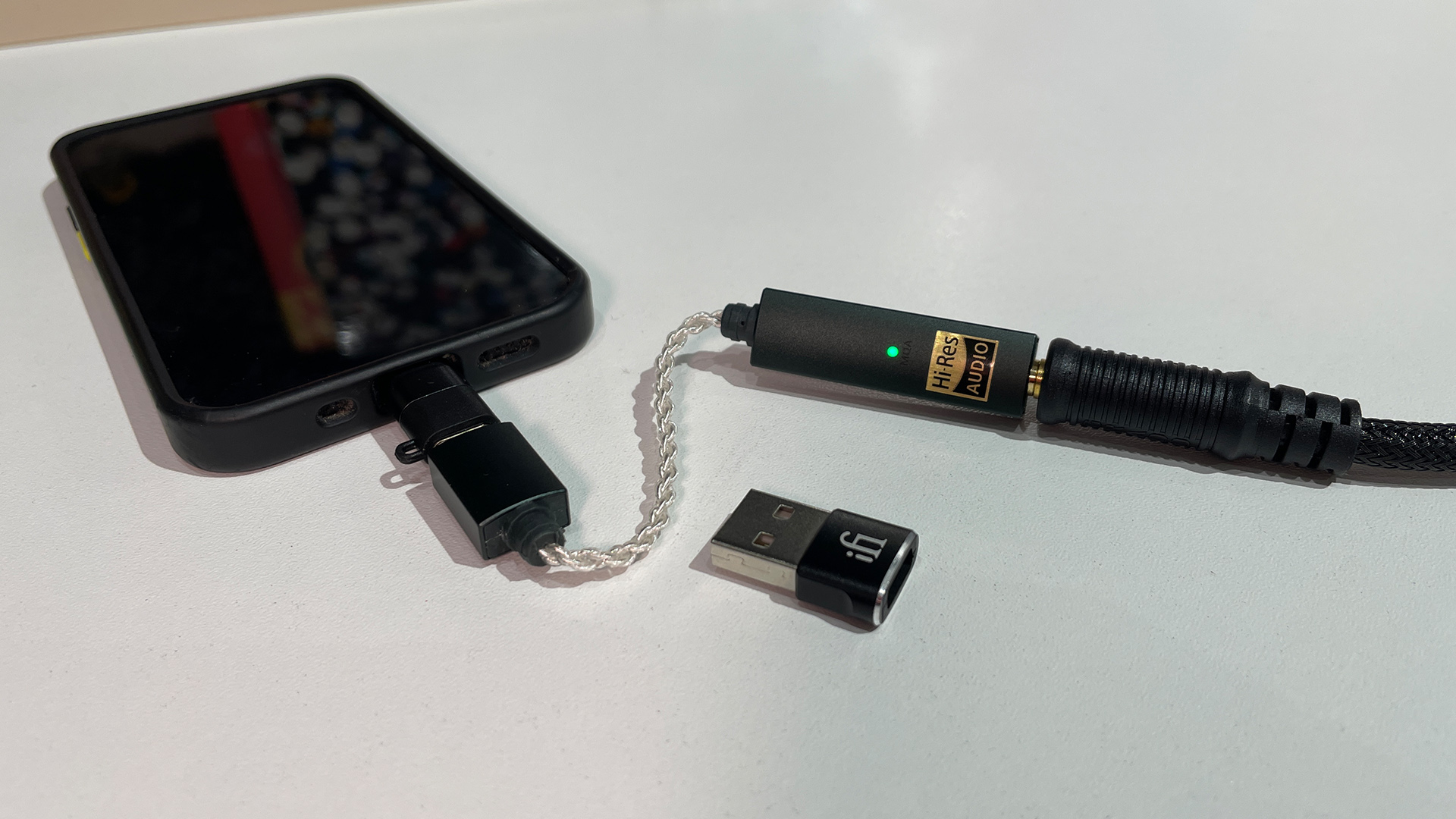
For such a small price and size, we didn’t have our expectations set particularly high with regard to the sorts of sonic improvements the iFi Go Link could muster. After all, how much firepower could really be housed in such an unassuming little package?
Rather a lot, as it so happens. The iFi Go Link feels like the perfect device for enhancing your headphones on the move and on a budget, living up to its brief of providing discernible sonic enhancements in a portable package without forcing you to fork out a fortune for the pleasure. Choose your apt analogy – Luton Town FC, Bruce Lee, Peter Crouch – the iFi Go Link joins the pantheon of performers punching well above their weight.
SCORES
- Sound 5
- Build 4
- Features 5
MORE:
Read our review of the Astell & Kern AK USB-C Dual DAC Cable
Also consider the AudioQuest DragonFly Red
Best DACs: USB, desktop and portable digital-to-analogue converters







